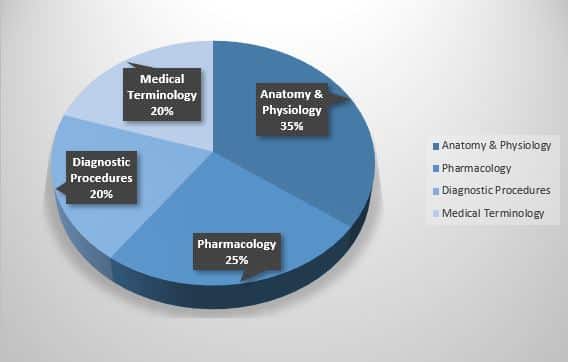Understanding Medical Transcription and Its Role in Patient Care
Essential skills for medical transcriptionists are at the core of accurately transforming recorded dictations from healthcare providers into clear, structured written documents such as patient charts and medical reports. This process captures critical details from patient encounters, diagnoses, and treatment plans, ensuring medical records remain precise, complete, and easy to reference. Reliable transcription supports continuity of care, clinical decision-making, and overall healthcare quality by creating a dependable written record for providers and care teams.
Medical transcriptionists play a pivotal role in maintaining detailed and precise patient records. Their work supports healthcare providers by ensuring that all medical documentation is clear, accurate, and up-to-date. This accuracy is essential for effective patient care, as it allows healthcare professionals to make informed decisions based on reliable data.
To excel in this field, medical transcriptionists must possess a strong knowledge of medical terminology, healthcare documentation integrity, and electronic health records. They need to be proficient in typing, with the ability to transcribe quickly and accurately. Additionally, excellent communication and research skills are vital for understanding and documenting complex medical procedures and diagnoses.
The role of a medical transcriptionist involves listening to audio recordings, practicing transcribing, and editing written documents to ensure they are error-free and clear. They often work independently, using transcription software and voice recognition systems to produce high-quality written reports, including pathology reports.
The field offers a range of career opportunities. Medical transcriptionists can work as independent contractors, self-employed professionals, or be employed by hospitals, clinics, or transcription companies. Staying up-to-date with industry standards and developments, including changes in medical terminology and healthcare regulations, is crucial for success in this career.
The demand for skilled medical transcriptionists is high, with ample opportunities for advancement and professional growth within the healthcare industry. To accurately transcribe medical documents, medical transcriptionists must have a strong knowledge of medical terminology, including radiology reports, pathology reports, and patient histories.
What we provide
Virtual Medical Administrative Assistant
Medical Virtual Receptionist
Remote Medical Scribe
Medical Billing Virtual Asssistant
Executive VA & Virtual Office Manager
Virtual Dental Administrative Assistant
Dental Virtual Receptionist
Remote Dental Scribe
Dental Billing Virtual Assistant
Virtual Dental Executive Assistant
Patient Care Coordinator
Prior-Authorization
Provider Support
Telehealth Specialist
Telephone Triage
Remote Patient Monitoring
Mastering Medical Transcription for Discharge Summaries
Discharge summaries are one of the most critical components of a patient’s medical documentation. A skilled medical transcriptionist must accurately capture the physician’s final diagnosis, treatment plans, medications prescribed, and follow-up instructions. Any error in this stage can directly affect continuity of care and post-discharge outcomes. Ensuring accuracy in discharge summaries is crucial for effective patient care and legal compliance.
Experienced medical transcriptionists are trained to handle complex terminology and convert dictated audio into clear, well-organized summaries that meet regulatory and institutional standards. Their attention to detail and command of medical terminology ensures that all necessary information is documented precisely, reducing liability risks and supporting quality care.
Foundational Knowledge
Medical transcriptionists require a strong foundation in medical terminology, including knowledge of medical procedures, diagnoses, and treatments. This understanding is crucial for accurately interpreting and documenting the complex language used in healthcare.
Ensuring accurate and reliable healthcare records is another essential aspect of the role. Medical transcriptionists must produce precise documentation, which is vital for effective patient care and legal compliance. Familiarity with electronic health records and transcription software, such as Express Scribe, is necessary for efficiently producing written reports.
Strong typing skills, including touch typing, are essential for meeting productivity and accuracy standards. Medical transcriptionists must be able to type quickly and accurately to keep up with the demands of the job. Excellent communication skills, including active listening and written communication, are also crucial. These skills enable transcriptionists to effectively interact with healthcare providers and produce high-quality reports.
Research skills are vital for staying up-to-date with industry developments, including changes in medical terminology and healthcare regulations. Medical transcriptionists must be able to quickly and accurately verify unfamiliar terms and procedures to ensure the accuracy of their transcriptions.
A strong understanding of medical field concepts, including radiology, pathology, and patient care, is necessary for accurately transcribing medical documents. Knowledge of how different areas, such as the radiology department, operate also helps ensure accuracy. Familiarity with transcription skills, including voice recognition systems and audio recordings, is important for efficiently producing written reports.
Medical transcriptionists must be able to work independently, managing multiple tasks and prioritizing assignments to meet deadlines and ensure accuracy. Strong knowledge of industry standards, including those set by the Association for Healthcare Documentation Integrity, is essential for producing high-quality written reports.
By mastering these foundational skills and knowledge areas, medical transcriptionists can ensure they provide accurate, reliable, and timely documentation, including patient histories, that supports high-quality patient care and effective healthcare operations. Every transcription starts with a clear and well-handled audio file, making attention to detail from the beginning essential.
Essential Skills for Medical Transcriptionists: What You Need to Know
In the fast-paced world of healthcare, the accuracy and efficiency of medical documentation are crucial. Formal education and training programs provide essential skills and knowledge necessary for success in medical transcription. Medical transcriptionists play a vital role in ensuring that clinical records are precise and up-to-date. For healthcare providers looking to hire skilled professionals, understanding the essential skills for medical transcriptionists is key to making informed hiring decisions and exploring the various employment opportunities available in the field of medical transcription.
Exceptional Typing Speed and Accuracy
A high typing speed is essential for medical transcriptionists. Professionals in this field should type at least 60 words per minute with exceptional accuracy. Even minor errors can lead to serious misunderstandings in patient care. Regular practice help transcriptionists achieve and maintain the necessary speed and precision. For more tips on improving typing skills, you can refer to this comprehensive guide.
Proficient Knowledge of Medical Terminology
Understanding medical terminology is fundamental for accurate transcription. Medical transcriptionists must be well-versed in anatomy, pharmacology, and various medical procedures. This knowledge ensures complex medical jargon is interpreted and documented correctly. Staying updated with the latest medical advancements is also important for handling new and emerging terms effectively. Understanding medical terminology is essential for accurately transcribing reports used by medical professionals.
Top Medical Transcriptionist Skills for Accuracy and Clarity
The field demands more than just fast typing. Core medical transcriptionist skills include a sharp memory, deep knowledge of medical terminology, and familiarity with formatting standards for various reports used by healthcare providers. Medical transcriptionist training courses provide essential skills such as traditional transcription techniques and voice recognition editing.
Medical transcriptionists must also interpret voice dictation with clarity, even when audio quality is poor or the speaker has a strong accent. Whether transcribing ER reports or physician consultations, these specialists demonstrate high precision and adaptability. Their work directly supports better documentation management and ensures clinicians can make decisions with reliable, real-time data. Hands-on practice transcribing various medical reports is crucial for developing accuracy and clarity.
Strong Listening Skills
Effective listening skills are critical in medical transcription. Medical transcriptionists often work with audio recordings featuring diverse accents, speech patterns, and technical jargon. They must discern and transcribe spoken words clearly, even in challenging conditions. Active listening techniques and using quality audio equipment can significantly enhance transcription accuracy.
Excellent Research Abilities
Even experienced medical transcriptionists encounter unfamiliar terms. The ability to quickly research and verify this information is vital. Strong research skills ensure that transcriptions remain accurate and consistent. Utilizing reliable medical resources and databases helps medical transcriptionists confirm details promptly, maintaining the flow and quality of their work.
Active Listening: A Core Competency in Medical Transcription
Among all medical transcriptionist skills, the ability to accurately hear and interpret dictations—often spoken quickly, mumbled, or interrupted—is arguably the most foundational. It requires intense concentration and practice.
Effective medical transcriptionists listen beyond the words. They grasp tone, context, and subtle cues that ensure the report reflects the physician’s intent. This skill helps minimize errors and reduces the need for clarification, allowing healthcare providers to operate more efficiently while maintaining excellent healthcare documentation standards.
High Level of Concentration and Focus
Medical transcription requires sustained concentration over extended periods. A Certified Medical Transcriptionist must stay focused to avoid errors and ensure efficiency. Implementing time management strategies and taking regular short breaks can help maintain high levels of attention throughout the workday.
Strong Organizational Skills
Managing multiple tasks with varying deadlines is common in this field. Strong organizational skills enable medical transcriptionists to prioritize effectively, ensuring timely and quality completion of all assignments. Proper organization also involves securely managing and storing sensitive medical documents in compliance with healthcare regulations.
Self-Motivation and Discipline
Many medical transcriptionists work remotely, which demands a high degree of self-motivation and discipline. They must manage their time efficiently, meet strict deadlines, and maintain consistent quality without direct supervision. Establishing a structured work routine and setting clear goals contribute to sustained productivity and performance.
Proficiency with Technology
Modern medical transcriptionists need to be tech-savvy. Proficiency with technology includes the ability to work with audio clips, which are often used in exams to assess transcription skills. Proficiency in using word processing software, voice recognition systems, and specialized transcription platforms is essential. Familiarity with Electronic Health Records (EHR) systems and secure data storage solutions further enhances their effectiveness. Keeping up with technological advancements ensures transcriptionists can work efficiently and adapt to new tools and processes. For a deeper understanding of how touch typing has evolved and its impact on modern skills, check out this article on Out of Touch with Typing.
The Role of Healthcare Documentation Specialists
A healthcare documentation specialist bridges the gap between verbal communication and legal medical records. Medical transcriptionists, as part of this role, convert spoken notes from physicians into detailed written reports, including radiology reports, that become part of the patient’s permanent file for future reference.
Their responsibilities often extend beyond transcription, including editing speech-recognized documents, correcting inaccuracies, and ensuring uniformity across medical records. By working alongside care teams, they support smoother workflows and bolster the quality of clinical communication. Their role is especially critical in specialties like radiology, pathology, and oncology, where report precision is non-negotiable.
Healthcare Documentation: Why Integrity Matters
In modern clinical settings, maintaining healthcare documentation integrity is more important than ever. From lab reports to operative notes, every entry in the patient chart must be accurate, complete, and timely. This is where medical transcriptionists and their expertise in medical transcription play a vital role.
Errors or omissions in healthcare records can lead to misdiagnoses, delayed treatments, and even malpractice claims. Certified professionals such as a registered healthcare documentation specialist help safeguard this integrity by following strict documentation standards, verifying information, and cross-checking inconsistencies. Their work supports compliance with federal regulations and enhances provider accountability across the care continuum.
How Medical Staff Relief Ensures Top-Quality Medical Transcriptionists
At Medical Staff Relief, we understand the importance of hiring medical transcriptionists with these essential skills. Our rigorous vetting process ensures that every professional we connect you with meets and exceeds industry standards. This process ensures candidates possess the necessary skills needed for success in the field.
Our comprehensive evaluation includes:
-
Typing Tests: We conduct detailed typing assessments to verify each candidate’s speed and accuracy, ensuring medical transcriptionists can handle the demands of real-world medical transcription.
-
Behavioral Assessments: These evaluations help us understand a candidate’s work ethic, focus, and ability to perform under pressure, which are critical for medical transcriptionists to maintain high-quality transcriptions.
-
Technical Proficiency Tests: We assess candidates’ familiarity with software and technologies, confirming that medical transcriptionists are capable of working efficiently and adapting to various technical environments.
By meticulously assessing these areas, we guarantee that our medical transcriptionists—many of whom hold credentials such as Registered Healthcare Documentation Specialist—are not only skilled but also reliable and ready to contribute effectively to your healthcare team from day one.
Conclusion
Hiring a medical transcriptionist with these essential skills is vital for maintaining accurate and efficient medical records, ultimately enhancing patient care. As the healthcare industry continues to evolve, focusing on these competencies will help you find the right professionals to meet your organization’s needs.
At Medical Staff Relief, we simplify the hiring process by providing access to thoroughly vetted, highly skilled medical transcriptionists. Contact us today to discover how we can support your medical transcription requirements and help your healthcare facility thrive.
Building Better Patient Records Through Medical Transcription
High-quality medical transcription supports the creation of reliable clinical documentation that serves as the foundation for diagnosis, treatment, and ongoing care. When medical transcriptionists produce clean, structured reports, they enable providers to make faster, safer decisions.
Additionally, accurate records improve coordination between departments, especially during transfers or referrals. With medical transcriptionists playing such a pivotal role and their strong understanding of Medical Terminology healthcare facilities can ensure continuity of care while meeting compliance demands.






